Five weeks ago, as Russian forces advanced into Ukraine, Olena Vasylchenko and her two children fled their home in the town of Kramatorsk. They left everything behind — even her husband Valerie. They have travelled more than 3,000 miles and now, finally, they have found a safe haven in Aberystwyth.
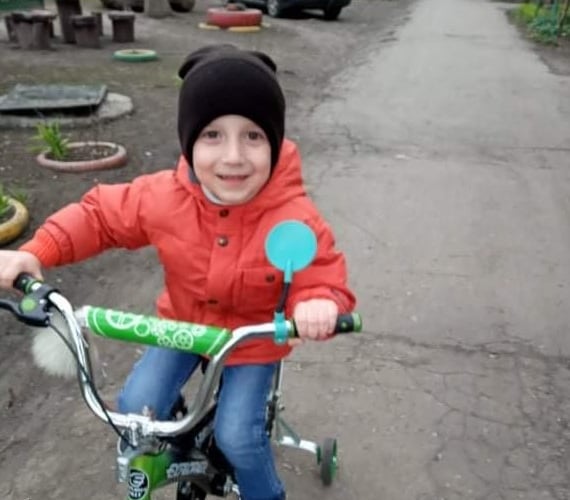
“THEY have just come with what they have,” Oleh Krawec says, fighting back the tears — and he is the interpreter telling Olena Vasylchenko’s story this Monday evening.
It is after hours at the Home Cafe on Pier Street in Aberystwyth — a welcoming spot during the day. Now, for the Vasylchenko’s, it is their new safe haven, their home away from home — if there ever again can be such a place.
Six-year old Lev is full of the energy of a child getting used to new surroundings. Valeria, 18, says little. And their mother, Olena, with the help of interpreter Oleh, tells their story of leaving Kamatorsk five weeks ago with just what they could carry.
Russian forces invaded their homeland and, last week, the station in Kramatorsk was hit by a missile. Some 60 people were killed — many children — and scores wounded. Olena’s husband of 10 years is back there, volunteering to protect their town.
“Olena’s husband is over there,” Oleh translates. “She does speak to him quite often. There’s nothing open at all, there’s no supermarkets, chemists are closed.
“There’s no food, they just have what they have. Humanitarian aid does come to the town to bring food.
“You can’t go out to drive to buy stuff, it’s too dangerous. Her husband is helping out in the town with whatever needs to be done. He’s not in the army, he’s in what’s like a home guard.
“He said it’s very difficult and the morale is very low.
“Their home is still standing, it hasn’t been bombed yet. Valerie goes home to check on it but he doesn’t stay there. He goes down into the basements with other people for safety.
“It’s very difficult to not be at home, as a family.
“She said her body is here, but her soul, mind and everything else is at home in Ukraine. They’re only here becasue they have to live, the body has to survive.”
The family’s home is only 20 minutes from the city of Mariupol, which has been devastated by the war and is expected to fall to Russia after being put under siege.
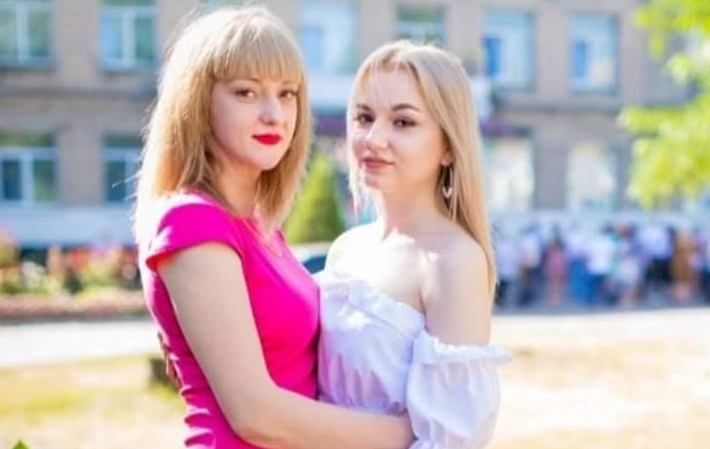
Olena and her children left their home, on 4 March, travelling for four days by train to get to Lviv: “When we left, there was a lot of people panicking. At one of the stations, Kropyvnytskyi, I had to sit in the bomb shelters to the sound of sirens. Then we went to Lviv, lying straight on the floor because there was no place and without strength because we almost slept for three days.
“In Lviv for two days, we were received by a very kind person, we rested and on 10 March, we went to Poland, to the city of Rzeszow.
“It hurts, that innocent people suffer, children. It’s scary, it’s cruel.”
Oleh says: “They travelled for four days, by three trains, changing all the time. They took a bit of food and water with them, but they were given it for free as well.
“They slept wherever they could; on chairs, on the floor, wherever they could in train stations. Olena’s mother is in Lviv and she’s hoping, over the next few days, to make it to Poland. She would like her mother, Ludmila, to come live here.
“She couldn’t join them on their way here because the road was very difficult. She’s 65-years-old. Her job was quite hard so she has trouble with her heart, she has tables she has to take every single day. She does walk, but it’s very slow and very difficult.”
Once in Rzeszow, they spent two days at different aid centres before they found a hostel.
“They had one room for the three of them. They had to live in that for three weeks, in that one room. It’s a very long wait for English visas,” Oleh translates.
“In the hostel they gave them food and drinks. They could wash and get clothes.
“Because they left behind everything at home. They came over with basically nothing.”
Olena and her children were able to come to Aberystwyth after they were sponsored by a local resident and Home Cafe owner, Ahmet Acikel.
“I thought they would have big luggage but they only had one suitcase between them.
“So we went to Matalan today and we bought some clothes and pyjamas, socks, and things like that. Lev is very active, so I bought him a bike second hand on Facebook marketplace. I’m trying to make them comfortable and settled here.
“We haven’t seen it first-hand, what they’re going through over there. But Olena cries everyday. I’m trying to calm her down, but it’s not easy. It’s going to take time to heal.”
Oleh continues: “From the New Year, the discussion was that Russia wanted to take the whole of Ukraine. The discussion was that they didn’t think it was going to happen but nobody was ever sure.
“Up until the New Year, they never thought there would be a war.”
Despite his young age, Olena said Lev has a good idea of what’s going on: “When they took Valeria out of university to leave, he saw the tanks on the road. He knew exactly what was going on.
“He learnt about the war and he knew the war was coming because of the internet, TV, and because children at school were talking about it.”
Oleh himself has family living in Ukraine, who have now managed to escape to northern Italy: “If I was younger I would have gone to war as well, but I’m 60-years-old. I said to my wife, I want to go to Ukraine to fight or help, and she said ‘you’re too old’.
“But I’d rather die than not help.”
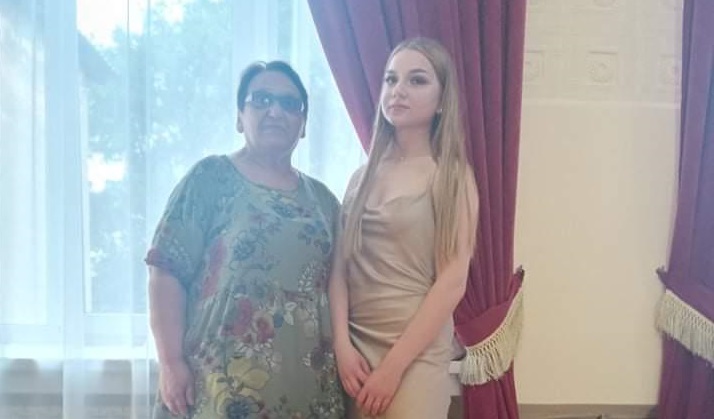
Going forward, Ahmet is trying to enrol Lev in Ysgol Plascrug, in Aberystwyth, and there are hopes Valeria can continue her pharmacy degree.
Oleh said: “I have asked if she would like me to come here on a regular basis, and start to help her learn English. But at the moment there is, without a doubt, a lot of trauma.
“Their lives have been turned upside down.”
Ahmet has been living in Aberystwyth for more than 18 years. “I’ve built up a good life here. People have always been kind and showed kindness to everyone.
“Home Cafe has always been very supportive of the local community, sharing good will among vulnerable, homeless people, trying to show them kindness daily living at Christmas and with Love Life Projects.
“Also we did NHS free meals and discount and free school means in the pandemic.
“The war in Ukraine is a really terrible situation, but it could happen anywhere and if I was a refugee I hope somebody would help me out.
“By helping others will help you and it would be a better world to live in. By sponsoring someone from Ukraine, I am also showing that I stand with them against violence,” the cafe owner says.
“It is important to me in my life that I can share my good fortune with others less fortunate. I know people in Aberystwyth are also very welcoming and are trying to help.”
‘Disgraceful’ wait for refugee visas
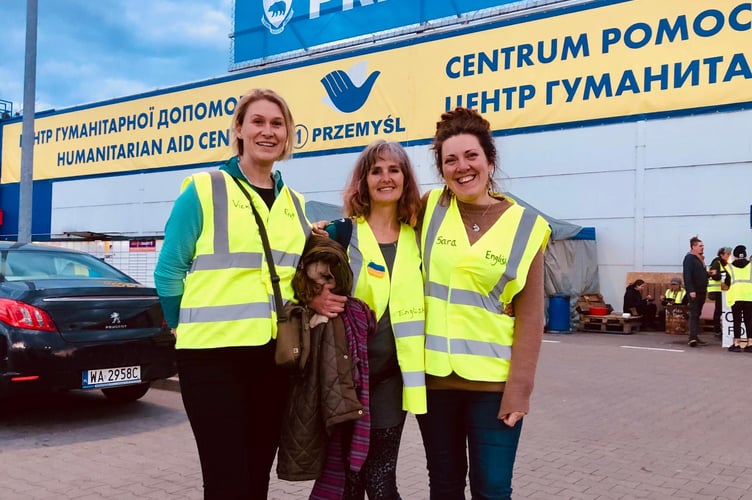
A Llanbrynmair resident, who volunteered on the Ukraine border, is meeting with a Mid Wales MP to discuss the “disgraceful” long visa wait for those fleeing the conflict.
Sara Wheeler travelled to Poland, with Vicky Rowe, to volunteer at the border with Ukraine for a week, from 30 March to 8 April.
While Wales recently became a ‘super sponsor’, meaning refugees no longer need a UK sponsor to be able to come to Wales, Sara thinks the three-week waiting period for a visa is unacceptable and is leaving people in “limbo”.
Sara said: “People are left in limbo, waiting endlessly for their visas to be processed with little or no support, and what support they do receive is from volunteers who just don’t have the resources.
“It is shocking.”
Sara contacted Montgomeryshire MP Craig Williams about her concerns that the UK is “not pulling our weight”, who then responded to set up a meeting to discuss the issue further.
As reported by the Cambrian News last week, while volunteering in an aid centre in Przemysl, Sara worked on the UK desk – where refugees would register their interest to come to the UK, be matched with a sponsor, prior to having to wait the few weeks for their visa.
But volunteers working on the desk do not have access to the UK Government list of sponsors and were unaware, at the time, of Wales’ position as a super sponsor.
In her email to Mr Williams, Sara said she thinks “we can do better”.
“[Three] weeks wait is disgraceful and is discouraging people from claiming refuge in our country. The British public clearly what to give refuge to these people- so why is the government making it so hard?
“No matches are made by the government - this website is merely a visa processing tool as I understand. The actual ‘matching’ of refugees to sponsors is happening at the borders by volunteers. “Do you think this is good enough? I do not. It is requiring voluntary organisations to duplicate work and the process is unregulated and potentially unsafe.”


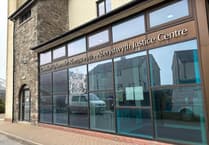

.png?width=209&height=140&crop=209:145,smart&quality=75)
Comments
This article has no comments yet. Be the first to leave a comment.